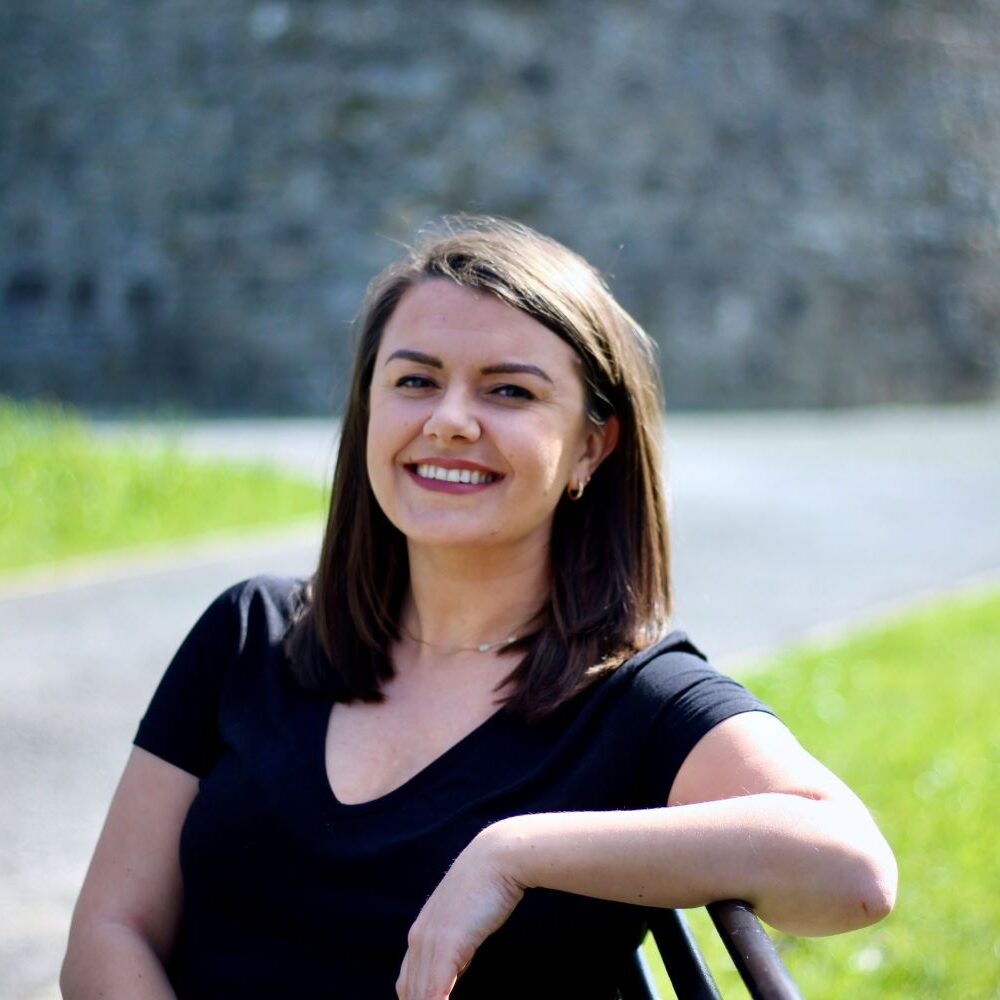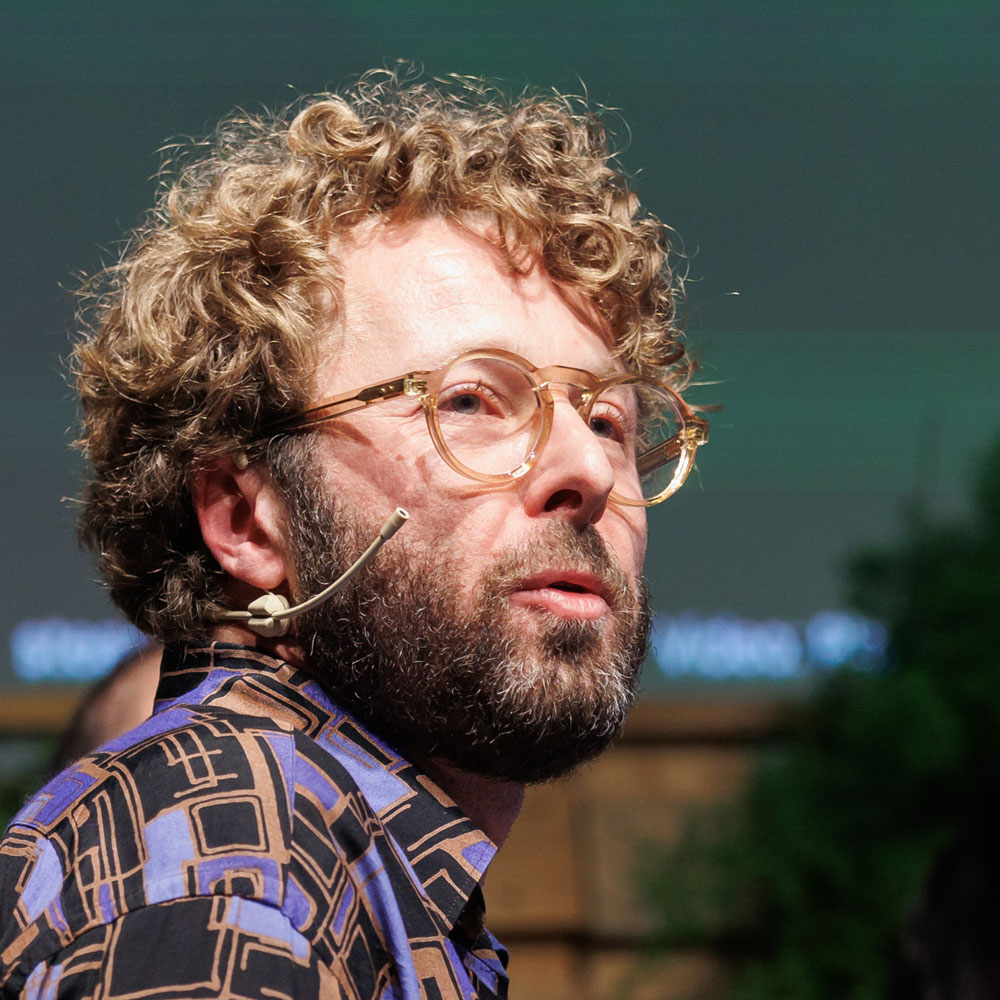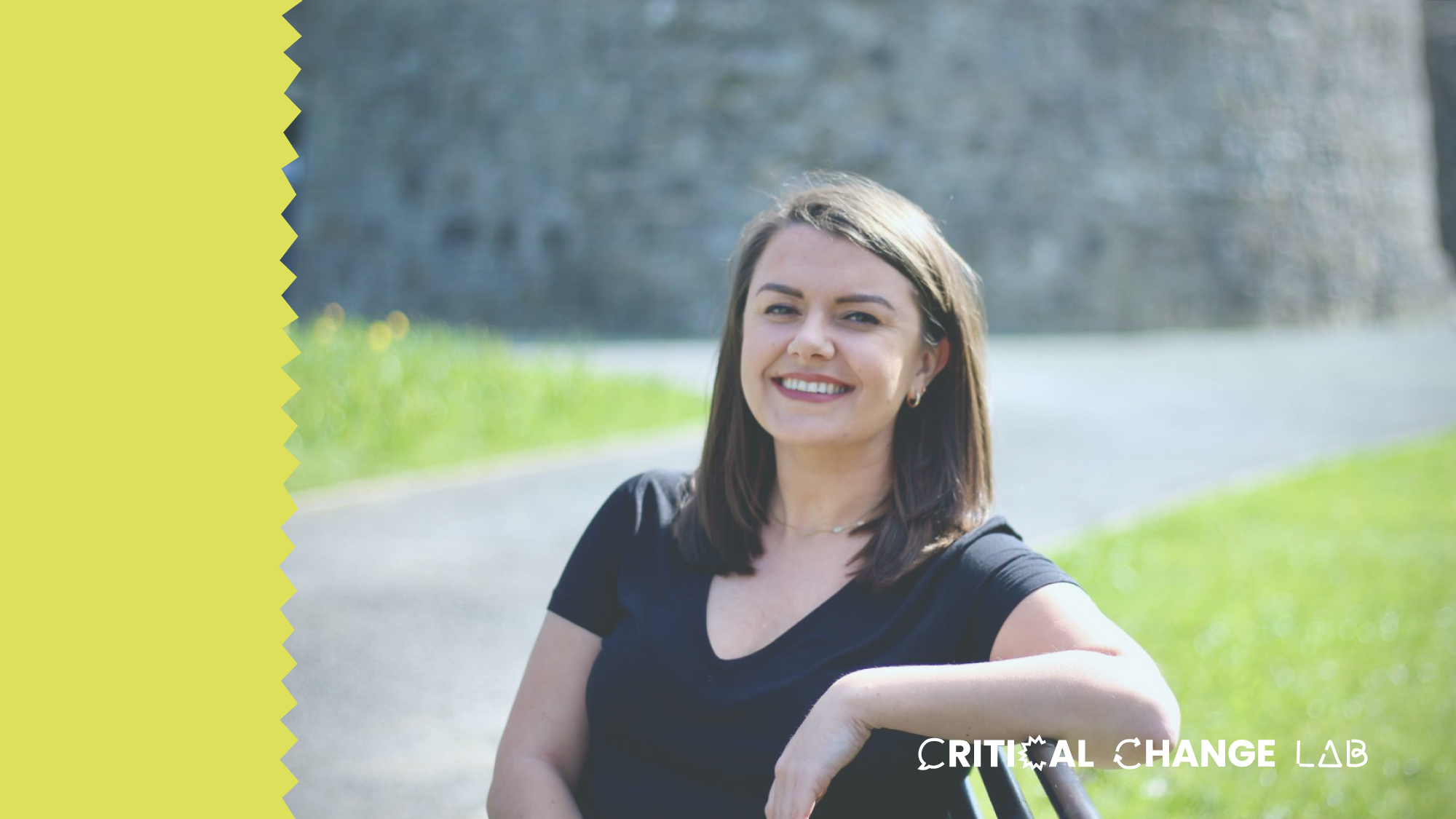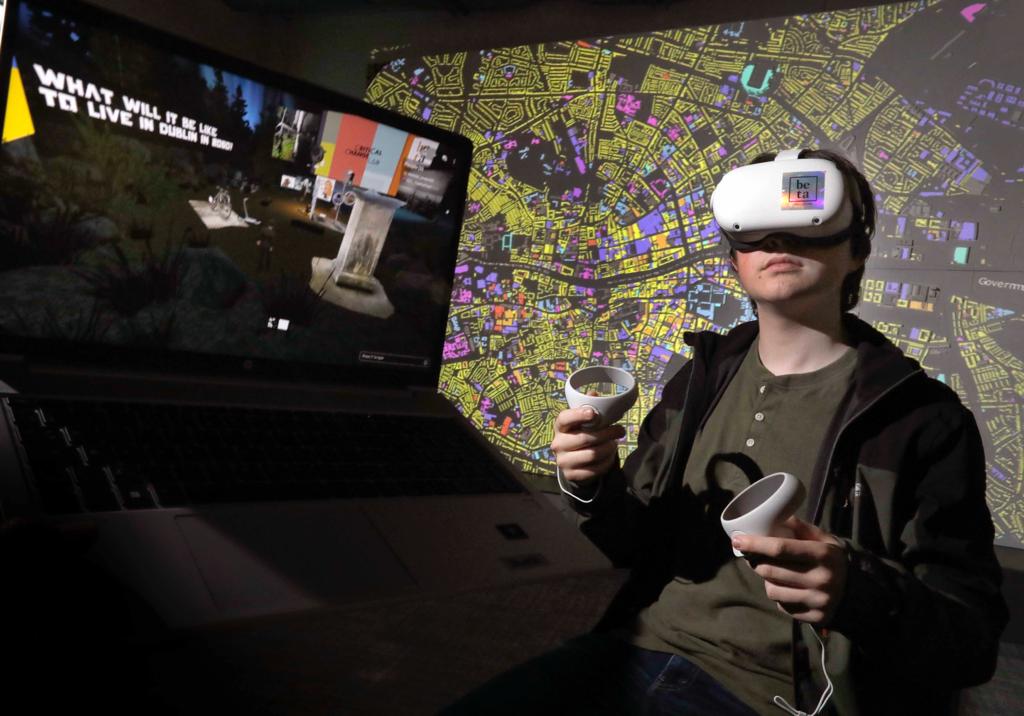Caitlin White from Trinity College Dublin speaks to Andrew Newman from Ars Electronica about envisioning futures within Critical ChangeLabs and the importance of taking interdisciplinary and critical approaches when working with young people.
The Critical ChangeLab team at Trinity College Dublin combines the expertise of researchers in the Science & Society research group and the Trinity Long Room Hub’s Democracy Forum. The Science & Society research group explores the myriad ways science influences society, and vice versa and is active in science education and public engagement with science across formal and non-formal learning settings. The Democracy Forum applies Trinity’s research in the Arts and Humanities to questions at the interface of media, technology, and democracy. The team will apply interdisciplinary perspectives, experiences, and approaches to the Critical ChangeLabs in Ireland.
Could you describe the broader mission of Trinity College Dublin, and more specifically the goals of each of the research groups involved in the Critical ChangeLab project?
Through our research and teaching at Trinity College Dublin we aim to engage students and society in the quest for knowledge, seeking to achieve excellence in all we do and responding with creativity and imagination to the challenges and opportunities of a shared future. And then the research groups and the teams that are involved in Critical Change Lab. Our mission all links in to the overall mission of the college and what we want to do in the Science and Society Group and in the Democracy Forum is to engage with wider society on the issues of democracy through education creatively and imaginatively.
How will your work in the Critical ChangeLab support you in achieving this mission?
I think the Critical ChangeLab speaks directly to the mission of the college. It aims to make the model for democratic pedagogy in and through learning environments. By fostering a creative space for young people through our work in the project, we’ll engage with a variety of stakeholders in European Society, particularly in Ireland. We hope to engage with different sections of society. So from young people in urban centres like what we’re doing at the moment to those in more rural, isolated communities. We want to foster those creative spaces using theatre, storytelling, art and new technologies.
We want to foster those creative spaces using theatre, storytelling, art and new technologies.
Will you be working with any partners in Dublin to help create those creative spaces?
Yes, we’re hoping to work with partners throughout the project to bring in different perspectives and different expertise into the programmes we’re doing.
The Digital Hub in Dublin is one partner that we’re working with. They are a company who provide spaces for tech startups. They also have a campus, with locations all throughout Dublin. The Digital Hub has massive community engagement programmes for the local community. They want to attract new business and.
The National Youth Council of Ireland is another partner. They have a huge network of youth work organisations and are often involved in European projects. Their Young Voices campaign is in particular linked to promoting democracy among young people and getting young people engaged in democracy on all different levels in society.
We’re also working with HoloGen, a start-up based in Dublin and led by Barry Haughey, who is an educator who specialises in VR and AR technologies. He’s helping us to use technology to engage with some of the big questions of imagining futures.
Technology appears to be quite an important part of your programme. How important do you think critical thinking about technology is to democracy education?
I think it’s hugely important. Especially when working with young people, as they’re so used to all these different forms of technology. They can pick up something and know how to use it almost intuitively because they’ve grown up with so many changes in technology.
It’s therefore really important to embed critical digital literacy and other critical literacies into the framework for Critical ChangeLab just to encourage young people to really think about the technology they’re using, how they’re using it, and how that shapes what they create with us.
And critical literacy more broadly, how important is it for envisioning futures? Is critical thinking a skill that is necessary to speculate on shared futures?
I think so. When young people today come of age, they’ll be in the mid 21st century. Critical literacy is necessary not just to understand the content that they’re consuming, but to understand where the content comes from and how that content is created. And also many of these people, they’re going to be going to be content creators themselves. Critical thinking is necessary for them to understand and to constantly reflect as well on what they’re creating and how what they’re creating is shaping the world they live in.
The team at Trinity College Dublin is leading the development of the Critical Literacies framework for the Critical Change Lab project. Could you give us a bit of an update on it?
Yes, we’ve created the framework! We did a review on the existing frameworks for critical literacy, extracted the data from the articles, and built on that research, we’ve created a new framework. It’s under review at the moment, but hopefully we’ll have a meeting soon where we can present it to everybody.
It’s quite exciting because there’s lots of different types of frameworks, and now we need so many different types of critical literacies, that we’ve proposed some changes in terms of the terms that we use. So for example, we don’t talk about text anymore. We want to talk about sources.
Lots of frameworks that we reviewed had elements in common. But from our work, we think that actually there should just be a baseline and an endpoint. and the elements in common, you could have one, two or all three of them to actually achieve critical literacy. So it’s much more flexible than a 123 step approach.
So yeah, I’m really excited to present it to the rest of the consortium because I want to see what people think of it.
I’m excited to see it. Critical literacy is something we always talk about in terms of art and STEAM education as well, so it’ll nice to have a more updated framework around that. But to back to the questions.
Could you give us a sort of overview of some of the previous projects that the Dublin team has been involved in that will help inform how you will approach Critical ChangeLab?
Our team comes from a variety of backgrounds and have worked on a huge variety of different projects. All of our different backgrounds and areas of expertise will contribute to how our we shape our Critical ChangeLab.
Mairead Hurley has worked extensively in public engagement with science during her time at the Science Gallery and in her own research. She’s explored the position of the arts and science and education, and how an interdisciplinary approach can enhance criticality in participants and young people.
Ellie Payne Elspeth is based in the Democracy Forum project. So she works with how the humanities can strengthen and promote democracy, which directly complements the Critical ChangeLab project. She also has a really successful public podcast called the History of The Future, and that has hugely informed our thinking on our future’s design, within our Critical ChangeLabs.
My own background is in history, particularly in statues and monuments and public engagement. And I worked as a tour guide and in workshop facilitation.
Both have really informed how I approach the content of the Critical ChangeLab and how we’ve approached the design of communication within the labs themselves. I use history a lot to scaffold the future thinking that we do in our workshops. There are lots of challenges working as an interdisciplinary team, but the work that we do and the thinking that we do to overcome the challenges themselves makes the projects that we do, I think a bit more robust. And I always think of it, that life isn’t divided into disciplines and doesn’t stay in one lane. So an interdisciplinary approach can address real life challenges in a real life way.
And wrapping up, could you tell us what you are most looking forward to with the Critical ChangeLab project.
I’m most looking forward to the futures. I’m really excited. I can’t wait to meet the groups that we’re going to be working with and to see their visions of the future and how they choose to express them. At the minute we’re working with a group to create virtual artworks that represent changes they want to see in their futures. The responses we are getting are both practical and creative, they highlight the hope that young people can have and their awareness of societal issues.
Life isn’t divided into disciplines and doesn’t stay in one lane. So an interdisciplinary approach can address real life challenges in a real life way.
Join our newsletter to continue to be updated on what we’re up to at #CriticalChangeLab. We’ll always keep it interesting, and only send you updates for as long as you want us to.

Caitlin White is a postdoctoral research fellow in the School of Education at Trinity College, Dublin, where she works on the EU-funded Critical ChangeLab project. She is passionate about making education accessible and available to the public. She has featured in RTÉ’s documentary ‘The Silent Civil War’ and has written exhibitions on Clerys department store and the National Archives of Ireland. Her research interests include modern Irish history, using the past to envision the future, critical literacies, commemoration, memory, global citizenship education, and workshop design.

Andrew Newman is focused on fostering transdisciplinary cultures as a producer for the European Platform for Digital Humanism at Ars Electronica. He is responsible for projects aimed at bringing artists and scientists together (STUDIOTOPIA), creating STEAM learning experiences (Critical ChangeLab, Open Science Hub, Creative School and STEAM INC), and promoting citizen science (European Union Prize for Citizen Science and IMPETUS). He previously co-founded the Research Institute for Arts and Technology in Vienna where he focused on integrating artistic research methodologies into technology research and development. andrewnewman.net | Linkedin

